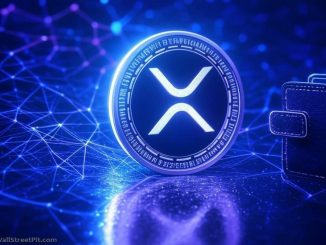
According to internal emails from the U.S. Securities and Exchange Commission (SEC), there is reason to believe that XRP, the cryptocurrency linked with Ripple Labs, may not be considered a security as it may not meet all aspects of the Howey Test.
The Howey Test is a legal test used in the U.S. to determine whether an investment transaction qualifies as a security under federal law. It was established by the Supreme Court in 1946 in the case of SEC v. W. J. Howey Co.
The test states that if an investment involves the investment of money in a common enterprise with the expectation of profits primarily from the efforts of others, it is considered a security and is subject to regulation by the SEC. The Howey Test is still widely used today in determining whether certain investments, such as cryptos or initial coin offerings (ICOs), qualify as securities.
Meanwhile, John Deaton, a well-known attorney and XRP supporter, discovered references to SEC emails in Ripple’s opposition and reply briefs’ footnotes. Deaton found it perplexing that Ripple’s legal team did not highlight the possible significance of these emails more prominently.
The emails, referenced as Exhibit 220, seem to suggest that there may be valid reasons to believe that XRP does not meet all the Howey factors. Deaton said he was surprised to discover a detail in the footnotes that he had missed despite reviewing thousands of pages of legal documents related to the case.
🚨NEW: A really interesting find by @JohnEDeaton1 in the footnotes of @Ripple’s Opposition and Reply Briefs.
It shows references to internal @SECGov emails conceding reasonable grounds that #XRP does not satisfy all elements of the Howey Test and is therefore “not a security.” https://t.co/R2zwWqjOrk
— Eleanor Terrett (@EleanorTerrett) May 21, 2023
It seems that this very important detail may have been overlooked because it was placed after a sentence about independent market participants sending analyses to the SEC asserting that XRP was not a security. The analyses determined that XRP was not considered a security, drawing attention away from the email citation that came immediately afterward.
Deaton also raised a thought-provoking question about why Ripple’s lawyers didn’t emphasize this information more if it came directly from a high-ranking SEC employee.
He suggested that the quote may not have come directly from an SEC official, but instead, an SEC official might have cited someone else’s analysis of XRP in the emails with Hinman, a former SEC official who in 2018 stated in his official capacity that he believed both Bitcoin (BTC) and Ethereum (ETH) are not securities.
- Bulenox: Get 45% to 91% OFF ... Use Discount Code: UNO
- Risk Our Money Not Yours | Get 50% to 90% OFF ... Use Discount Code: MMBVBKSM
Disclaimer: This page contains affiliate links. If you choose to make a purchase after clicking a link, we may receive a commission at no additional cost to you. Thank you for your support!




Leave a Reply